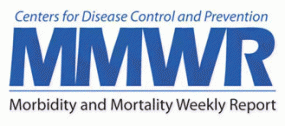Enterovirus A71
What is enterovirus A71?
First identified in the United States in 1969, enterovirus A71 (EV-A71) is one of more than 100 non-polio enteroviruses. Worldwide, EV-A71 is a common cause of hand, foot, and mouth disease in infants and young children.
How common is EV-A71 in the United States?
Small numbers of EV-A71 detections have been reported regularly to CDC since the 1990s. Small regional outbreaks sometimes occur in the U.S. in an unpredictable pattern, similar to all enterovirus circulation patterns. We can’t predict whether EV-A71 will be a common type of enterovirus detected this year or in future seasons. That’s because a mix of enteroviruses circulates every year, and different types of enteroviruses can be common in different years.
What time of the year are people most likely to get infected?
In the United States, you are more likely to get infected with enteroviruses, such as EV-A71, in the summer and fall. However, you can get infected year-round.
What are the symptoms of EV-A71 infection?

A report published in MMWR describes cases of neurologic disease associated with enterovirus A71 among children in Colorado in 2018.
Read the report.
EV-A71 can cause a mild illness that clears on its own, such as hand, foot, and mouth disease, or no symptoms at all. Rarely, it can also cause severe neurologic disease, such as meningitis, encephalitis (swelling of the brain and spinal cord) or acute flaccid myelitis (AFM).
How does the virus spread?
EV-A71 can be found in an infected person’s respiratory secretions, such as saliva, nasal mucus, or sputum (mucus-like secretions sometimes produced in the lungs during infection), in their stool (poop), and in their blisters if they have hand, foot, and mouth disease. You can get exposed to EV-A71 through:
- close personal contact, such as hugging an infected person
- the air, through droplets, when an infected person coughs or sneezes
- contact with feces (poop), such as changing diapers of an infected person, then touching your eyes, nose, or mouth before washing your hands
- contact with contaminated objects and surfaces, like touching a doorknob that has viruses on it, then touching your eyes, mouth, or nose before washing your hands
Who is at risk?
In general, infants and children are most likely to get infected with enteroviruses and become ill. That’s because they may not yet have immunity (protection) from previous exposures to these viruses. We believe this is also true for EV-A71. Adults can get infected with enteroviruses, but they are less likely than children to have symptoms when infected.
How is it diagnosed?
EV-A71 can only be detected using specific lab tests on specimens from a person’s nose and throat, feces, or more rarely cerebrospinal fluid (CSF). Many hospitals and some doctor’s offices can test ill patients to see if they have enterovirus infection. However, most cannot do specific testing to determine the type of enterovirus, like EV-A71. CDC and some state health departments can do this sort of testing by doing a specialized test called molecular sequencing on genetic material from an infected patient’s nose, throat, or feces. Health departments can review CDCs laboratory testing and procedures for more information.
What are the treatments?
There is no specific treatment for people with EV-A71 infection. People with neurologic illness or other severe illness may need to be hospitalized to receive supportive therapy. There are no antiviral medications currently available for people who become infected with EV-A71.
How can I protect myself?
To lower your risk of getting infected with EV-A71, you should
- Wash your hands often with soap and water for 20 seconds, especially after changing diapers and using the toilet. Visit CDC’s Clean Hands Save Lives!for more information
- Clean and disinfect frequently touched surfaces and soiled items, including toys.
- Avoid close contact such as kissing, hugging, or sharing eating utensils or cups with people with hand, foot, and mouth disease.
There is no vaccine available in the United States to prevent EV-A71 infection.